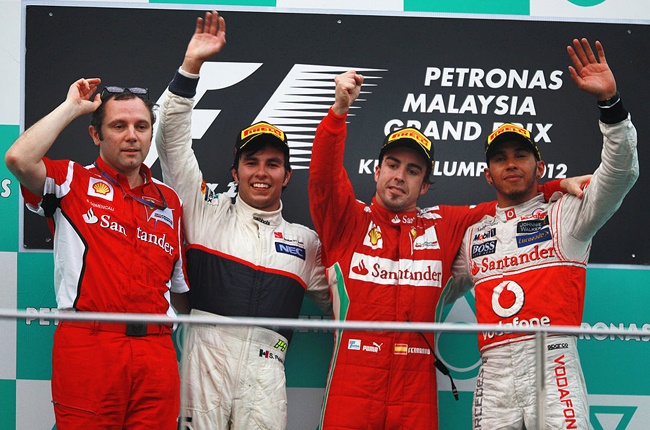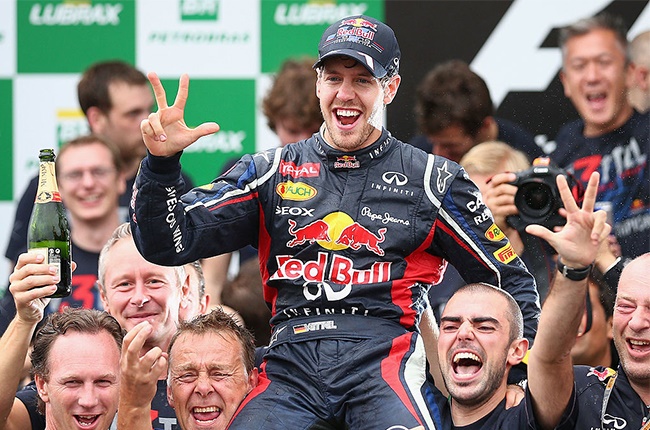• Between 2008 and 2009, Formula One had only three engine suppliers.
• Honda's departure from the sport is a reminder how history can repeat itself.
• Sometimes less can deliver a whole lot more.
• For more motoring stories, go to www.Wheels24.co.za
As a counterpoint to the hysteria surrounding Honda's recent decision to withdraw from Formula 1 at the end of 2021, the sport's ringmasters only need to be reminded of how history can repeat itself.
In the last period characterised by an exodus of manufacturers - and not just one, but three (Honda, BMW and Toyota) - between 2008 and 2009, F1 was left only with engines from Mercedes, Renault and Ferrari powering most of the grid. Perennial coming-and-going bottom-tier no-hopers such as Virgin Racing, HRT and Marussia opted for the cheaper and ineffective Cosworth option that never threatened the leaders.
As the 2000s entered its second decade, F1's zeitgeist could not be any more different than it is today. Back then, the sport's primary focus was around envisioning a post-economic crisis resurrection and preparing for the upcoming complications threatened by the turbo-hybrid era; VW's Dieselgate bomb (the massively expensive PR fallout of which would affect all future corporate motorsport investment) still lurked undiscovered, and sustainability was as much a non-issue as a seven-year-old Greta Thunberg being too young to take to Twitter. Yet.
But could F1 survive, and let alone thrive, with just three engine suppliers remaining?
Dynamite season
Suppose the current turbo hybrid years dominated by Mercedes has been robbing viewers of excitement-filled Sunday afternoons in the 132 races since 2014's season opener. In that case, it only serves as payback for the adrenal tsunami that indulged audiences during the dynamite-packed 2012 championship.
On statistics alone, Hollywood could not have scripted it better: a record number of six participating world champions – notably the swansong year for a by-then-well-past-his-prime Michael Schumacher; and a different winner for each of the year's first seven races that included a shock debut victory and Williams's last for the crash magnet and pay driver Pastor Maldonado.
Fernando Alonso, then at the height of his powers in a second-rate Ferrari, was the first driver to take his second victory of the season only by June of that year, at arguably the best race of his career in front of his adoring home crowd at Valencia; where he savoured an inspired win after starting from 11th as fellow title protagonists, Vettel and Lewis Hamilton both retired.
After the mid-year break, Alonso had, through metronomic consistency, built a 40-point championship lead which was his to lose - which he did, thanks to disastrous double eliminations at Spa and Suzuka where Vettel took 43 points from the Spaniard. Incredibly, initially, Vettel scarcely seemed to feature in the championship hunt, having had to wait ten races between his first and second victories, and only becoming a title contender after unleashing a quadruple set of wins on the trot between Singapore and India towards the end of the season.
In fact, the Red Bull driver was only able to draw level with points leader Fernando Alonso with five races to go; and the title chase stayed alive right until the season-ending showdown at a rain-soaked Interlagos.
Ferrari team principal Stefano Domenicali (far-left), second placed Sergio Perez, race winner Fernando Alonso, and third placed Lewis Hamilton on the Malaysian Formula 1 Grand Prix podium in 2012 (Mark Thompson / Getty Images)
Unexpected drama
While Alonso kept outscoring Vettel in the final three races by 10 points, the German needed just three points in Brazil to be crowned champion.
But there was more drama to come: Vettel spun on the first lap and suffered minor damage while falling to the back of the pack, but through sheer determination clawed his way back to contention; finally outscoring Alonso by just three points and becoming only the third driver ever to win three world titles in a row.
As the shrieking 19 000 r/min, rev limited 2.4-litre V8s had long since reached maturity since being introduced in 2006, instead of brute power this final chapter in the generation of naturally aspirated engines was characterised by the pursuit of aerodynamic one-upmanship around the cars' exhaust-blown underfloor areas. Red Bull obliterated its opposition by continuously out-innovating them and the ever-head-scratching rule makers, particularly in 2013.
Yet their dominance was such they could have probably won their clutch of championships with a Cosworth engine: it just so happened that the Renault with its low cooling demands was especially accommodating of the extreme packaging required to optimise airflow around and at the back of the car. And Renault further assisted in developing engine maps that allowed for the continued off-throttle blowing of the exhaust's hot air during cornering to generate additional downforce, which was soon banned.
Clearly, the 2012 season stands out as a towering showcase of F1 in its loudest, proudest, most colourful, and most gripping glory: one for the ages.
Back in 2020, as the resulting anger at and angst of Honda's exit continues to fester in F1, a year like 2012 has as a lesson demonstrated that what the category really needs is increased performance parity between more teams - and not necessarily an increase in engine manufacturers.
IndyCar - admittedly a spec series that prescribes the use of far more standard components, notably one chassis to be used by all competitors - manages with just Honda and Chevrolet.
In 2012, five different teams powered by just three various engines delivered F1's most exhilarating season of the century - a statistic that F1 in 2020 would simply die for. And is plenty of proof that sometimes less can deliver a whole lot more.
Sebastian Vettel celebrating his third F1 championship with his team in 2012 (Clive Mason / Getty Images)




 Publications
Publications
 Partners
Partners












